



PLUS: Healing life's hurts - Page 3 ● Outback Mum - Page 7 ● Embrace the Grace at New Norcia - Page 5 ● In the Family Way: Sam and Bethany's story - Page 10 ● How to be a better Father - Page 16 ● Proofing the family against consumerism - Page 14 Catholic magazine for families # 14 October 2004 JOHN HUGHES GROUP OF COMPANIES Company Philosophy “That of a friendly and efficient company, trading with integrity and determined to give its customers the very best of service.” Success through customer service. 49 Shepperton Rd, (Just over the Causeway), Victoria Park. Phone : 9334 3333 D/L 6061 Success through customer service. John Hughes discovery Gearing up for WYD '05 Pages 8 - 9
How to contact discovery and The Record
Letters to the Editor cathrec@iinet.net.au
PO Box 75 Leederville, WA 6902
Administration inc. sales/subscriptions
Kylie Waddell administration@therecord.com.au
PO Box 75 Leederville, WA 6902
Advertising
Carole McMillen advertising@therecord.com.au
PO Box 75 Leederville, WA 6902
The Record
587 Newcastle St, Leederville Post: PO Box 75 Leederville, WA 6902
Tel: (08) 9227 7080
Fax: (08) 9227 7087
Journalists
Bronwen Clune clune@therecord.com.au
Jamie O'Brien jamieob@therecord.com.au
The Record on the web coming soon
Congratulations to discovery readers on a great job
discovery readers can take a bow. In our last edition we reported on the remarkable story of two young boys from Mandurah - Liam and David Roche. They were the boys on the front cover.
At a time when many people comment on the very real problem of fast-disappearing commonly-held values in our society and among young people in general, two young men aged 10 and 12 showed all of us what it really means to stand up and do something important when it really counts.
We also reported on the looming tragedy in Sudan and Chad where innocent people are daily being killed by Sudanese authorities and their Janjaweed militias. This terrible thing continues to unfold before our eyes. Liam and David, moved by a report on televison, decided to sell chocolates to raise money for the
refugees. By the time discovery went to press they had already spoken at local churches and schools and raised over $3,000.
Caritas, the Australian Catholic Church's aid and development agency had also launched its own national appeal. We reported on Liam and David's quest to raise consciousness and touch hearts here on Page 2, together with a detailed report from Caritas on the situation on the ground in Africa on Page 16.
Obviously, Liam and David's story and the Caritas briefing which depicted the squalour in which refugees were living touched many people. A fortnight after discovery went out, Perth Caritas director Anne Fairhead contacted us to let us know that the phones hadn't stopped ringing with calls from people wanting to donate to the appeal.
Nationally, over $600,000 was raised, she told discovery as it went to press last week. However of this
amount Perth people had donated about $123,000. Callers mentioning discovery had been responsible for approximately one-third of all the monies donated in Perth.
The overall Perth response was "huge" she said.
Calls had continued to come in for 3 to 4 weeks after discovery hit schools and family homes across Western Australia.
The response from parishes had been "especially wonderful," she said.
When you sit back and look at the figures they are interesting.
Considering that Western Australia represents only 10 per cent of our nation's population, what the figures tell us is that Western Australians gave somewhere in the vicinity of 20 per cent of the donations.
Congratulations, readers. You came through when it counted.
Congratulations, Liam and David, you are examples to us all.
MISSION POSSIBLE
Archbishop








-

Barry Hickey, together with the Catholic Mission Office in Perth, invites parishioners throughout the Archdiocese and beyond to attend the 2004 Archdiocesan Mission Mass. The Mass will be celebrated on Children’s Mission Day – Wednesday, 27 October - at 11am in Sts John and Paul church, Willetton. Come along and be united with students, educators, clergy, missionaries, and parishioners from across Perth in a celebration of our common call to Mission! Bishop Donald Sproxton will be the Principal Celebrant at the Mass and priests are invited to concelebrate. For more information, call Francis at Catholic Mission on: 9422 7933, or email: catholicmissionperth@bigpond.com.

Australian Council of Natural Family Planning
Natural Fertility Services
Helping Couples Achieve, Avoid and Space Pregnancies
Since 1968.
Phone 1800 114 010 for a confidential appointment
www.acnfp.com.au <http://www.acnfp.com.au/> perth@acnfp.com.au
Family Life Education.
(A Department of Natural Fertility Services)
Fertility and Sexuality Programs:
Pre-Marriage and Marriage Enrichment Courses
Pregnancy and Breastfeeding: Antenatal / Postnatal Groups
Parenting and Education: Schools / Colleges (Primary & Secondary). Teenage Sexuality (Small Groups).
Phone 1800 114 010 to discuss your requirements
Funded by: The Catholic Archdiocese of Perth and Commonwealth Department of Health and Ageing.
Perth NFP Services 29 Victoria Square
PERTH WA 6000
tel: (08) 9223 1396, Fax: (08) 9221 3497
discovery October 2004 Page 2
discovery, circulation 68,000 copies, is published 6 times a year in school term and circulates to all families with a child in a Catholic school in Western Australia and all Catholic parishes in the state as well. Seeking a challenge or change of lifestyle or retired? The Kalumburu Mission Parish, Diocese of Broome, Western Australia has immediate vacancies for volunteers to assist in the Mission grocery store, take-away, camping grounds, accommodation units and office. Located on the coastal edge of the most rugged, though beautiful part of Western Australia. View: www.kalumburu. com. For further details and an application form please contact: The Administrator, Kalumburu Mission, PMB 293, via Wyndham WA 6740. Ph: 08 9161 4333, Fx: 08 9161 4349. email: kalumburumission@bigpond.com We can help:
married couples experiencing fertility difficulties or miscarriages
women with menstrual or other women’s health problems
couples wanting to learn about their fertility and plan their families naturally
a confidential discussion contact Dr Amanda Lamont 9388 1334 8/10 McCourt Street, West Leederville
Australian Centre for FertilityCare and NaProTECHNOLOGY www.fertilitycare.com.au
-
-
For
The
A unique natural medical approach to your fertility. FERTILITY CARE
Healing life's hurts
By Barbara Harris and Louise Sandon
Ten years ago, Kerri Sorgiovanni, was a teacher assistant in a local primary school.
The children in the year two class in which she was working were asked by their teacher to write about their weekend in their journals.
“While I was walking around checking spelling, I noticed what one little boy had written,” Mrs Sorgiovanni said.
The story went like this.
‘On the weekend my daddy packed his bags and left. My daddy said that it was for the best.’
According to Mrs Sorgiovanni, too many children in the world today are being confronted by scenes of trauma, for example, the Bali bombing, the terror in Beslan, death and marriage breakdowns.
A program intended to facilitate peer support to grieving children due to separation, divorce, death or any other pain-filled transition with in their family unit is operating in West Australian Schools.
Under the name of Rainbows, the program was adopted from a similar idea in the United States co-founded by Suzy Yehl Marta and Fr Medard Laz in 1983.
A divorced mother of three, Suzy discovered how much her own children hurt after her divorce. Fr Medard Laz is a counsellor to the windowed and divorced.
The program began operating in WA in 1988 and Whitford Catholic Primary School was one of the first schools to introduce it. The program has now spread to 87 schools around the Archdiocese. Children participate in small groups of between three and five students, and sessions run for 12 weeks during school hours.
Junior primary children have a 30-minute session once a week; the

middle and upper primary sessions are 45 minutes each.
At the completion of the program all the groups in the school come together for a ‘Celebration Me Day’, participating in various activities with themes such as ‘Forgiveness’, ‘Yes I Can’, ‘You are Loved’ and ‘Who is to blame?’ Children are also given the opportunity fill out an evaluation form anonymously. Anne, a mother of two boys, found the Rainbows program a great help for her children when her marriage broke down ten ago.
“I watched my boys become confident and able to openly express how they were feeling,” Anne said.
“I think the biggest value the children discovered was that they were not alone in their struggles and feelings about the marriage break up.”
Now she is hoping that her elder son will have the opportunity to attend Rainbows.
If you are interested in finding out more about Rainbows, please phone (08) 9243 0422.

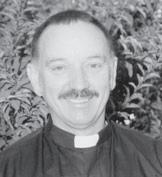




The CDP Christian Party is made up of ordinary people from many Christian churches (including the Catholic Church) who are deeply concerned about the erosion of Christian moral values in our society.
CDP believes that the best way to protect and restore Christian values in our society is to elect Christian politicians to our parliaments who will stand firm for Christian values.
CDP stands for putting families first, protecting children, caring for elderly and frail people, and restoring spiritual values in society through Christian-based policies in health, education, economics, etc.
Do you also support these goals?
CDP is opposed to abortion which harms mothers and kills unborn children, to experimentation on human embryos that results in their destruction, lowering the age of consent for homosexual acts, moves to legalise the killing of the sick
elderly, legalising prostitution, stopping prayers in Parliament, removing God from the oath, and other anti-Christian matters.
Are you also opposed to these things?
Please for the sake of your future, support the CDP Candidate in your electorate.
CDPʼs wide-ranging policies can be viewed at www.christiandemocratic.org.au/wa
Enquiries on 1300 305 237

discovery October 2004 Page 3
and
What is the Christian Democratic Party? Authorised by Gerard Goiran, 7 Matthew Way, Thornlie ADVERTISEMENT With no upfront fees, Notre Dame is more accessible than ever before * * FEE-HELP is available for Australian students from 2005 Applications close 30 September to be considered for 1st round offers. Please refer to the application guide for important date information. For further information regarding our courses, fees and admission requirements: Prospective Students & Admissions Centre • POBox 1225, Fremantle Western Australia 6959 Tel: (08) 9433 0533 •Fax: (08) 9433 0544 • Email: future@nd.edu.au www.nd.edu.au CRICOSPROVIDERCODE:01032F APPLICATIONS ARE NOW BEING ACCEPTED FOR 2005 RELIGIOUS PRODUCTS Rich Harvest Bibles, Books, CDs, Cards, Gifts, Statues, Baptism/ Communion Apparels, Albs, Vestments and many others. Call after 10.30am. 39 Hulme Court, Myaree (08) 9329 9889 To Advertise in discovery Call: 9227 7080
Pastoral care: Rainbows helps children to understand the feelings and emotions which come from life's hurtful experiences. Sessions run for 12 weeks during school hours.
HELP NEEDED Volunteer Tradesmen Plumber, draftsman, electrician, carpenter, bricklayer, tiler all wanted for small job in convent. Please contact Persi on 9225 7199 or 0421 133 716
A new life begins
Catherine Parish @home
Ihad to give my daughter ‘the talk’ recently, after a misunderstood joke from school began a trail of inquiry that led inevitably to the ‘facts of life’. But it is a salutary and refreshing experience to have to couch such things in terms, and within a larger framework of whole lifestyle, understandable to an 11 year old. How good it is to remember that our children resulted from the loving embrace of mother and father. How incredible to contemplate that from the moment of conception within the woman’s body, another totally unique person is in existence. Like a microchip, that tiny conceptus is encoded with an unbelievable amount of information - a whole person is contained within it. Given the right environment, it will in due course reveal all that information as the
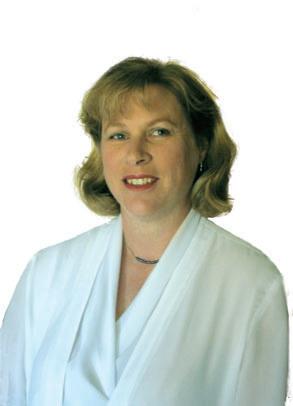
correct triggers occur. How very quickly those recognizable physical parts appear - a heart formed and beating at four weeks after conception; hands and digestive system at five weeks; nose, eyelids and skeleton at six weeks!
It is more than astonishing - it is positively miraculous, and there is nothing like explaining the wonder of it to an 11 year old to feel anew that feeling of blessedness that accompanies very early pregnancy (for me, anyway - until the morning sickness starts!). That absolute knowledge that you are carrying a living child, no matter what anyone says to the contrary, is strangely strengthening and even joyous, despite the sometimes difficult circumstances surrounding, pregnancy.
Even explaining the pain and difficulty of childbirth in acceptable
rather than frightening terms makes one remember the whole context of giving birth. Explaining that after nine months of carrying around your tiny child just under your heart, feeling, his or her movements, experiencing their hiccups, being sharply kicked as a reminder that being squashed is not a pleasant experience for anyone no matter how young, you are just so eager to meet this little person face to face that the first thing you think when you see your baby is - “Hello, little one - so that’s what you look like!” not, “Thank God that’s over” (that’s the second thing). The feeling of a tremendous achievement, a long and difficult job well done, and the thrill of having your baby to hold for the first time, completely overshadows the pains and distresses of giving birth. I never would have believed it either, except I have experienced it several times. In the context of the wonder and mystery of the whole process of conception and childbirth, it becomes surprisingly easy to convey unambiguously that this process should only happen within a loving, and trusting family unit, and that therefore sex is a marvellous gift only for the use of married people. It just seems to make sense on a human level, without reference to religion at all, that children should be born into a secure, stable and loving

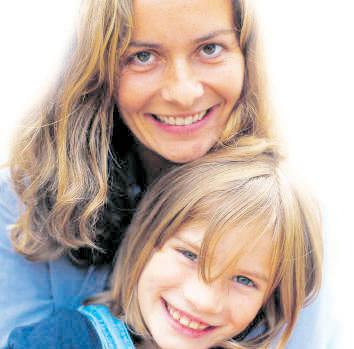
environment where they have the best chance, no t only of surviving, but of thriving. The traditional family, mother,
father and children, is still the best way - not only long usage, but modern research, is increasingly supporting this fact
Bachelor of Education (Conversion)
Notre Dame highly values its role as a major contributor to the truly great vocation of teaching.
The University of Notre Dame Australia offers this one-year full-time (or equivalent part-time) undergraduate program that enables three year trained primary teachers to upgrade their qualification to a four-year degree status. Students may use appropriate electives to complete 4-unit sequences in Early Childhood Education, Religious Education, or Special Needs (Special Education).
From 2005, all Australian students at Notre Dame will have the option of deferring their fees on the new FEE-HELP loan scheme. With no upfront fees, Notre Dame is more accessible than ever before.
What are you waiting for?

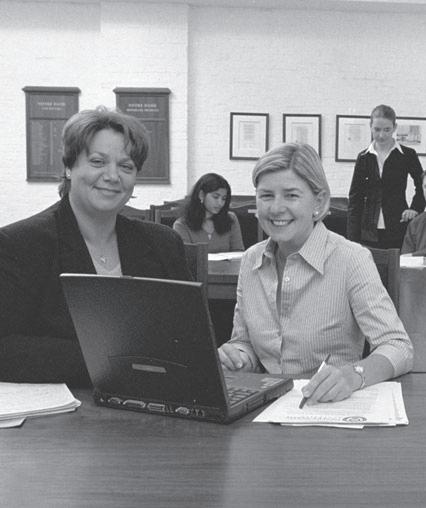
Diploma unique blend
The graduate diploma in counselling has been offered at the University of Notre Dame since 2002 and is known for its unique blend of theory and practice. This practical experiential program places great emphasis on small group training and is seen to mirror best practice in counselling interventions. The training techniques used emphasise the importance of the personal development of the counsellor so that the unique relationship between counsellor and client allows for greater empathy. Research indicates that best outcomes from counselling interventions are a function of the relationship between counsellor and client and it is to this end that the counselling programs at Notre Dame are structured to focus on developing the client/counsellor
relationship. Counselling at Notre Dame does not have a preference for any particular model of counselling but favours an eclectic and integrated approach. Areas of study include theories and approaches to counselling, counselling skills training and an element of student centred learning which requires seminar presentations. Much of the training is in small groups.
Students are expected to have access to some clients during their work and they are required to discuss these cases on campus where supervision of their counselling takes place.
The lecturers delivering the counselling programs are themselves expert practitioners. This in itself brings a greater reality base to the student experience.
discovery October 2004 Page 4
For further information please contact the Prospective Students & Admissions Centre • POBox 1225, Fremantle WA 6959 Tel: (08) 9433 0533 • Fax: (08) 9433 0544• www.nd.edu.au Email enquiries to Keith McNaught at the College of Education Email: kmcnaught@nd.edu.au • CRICOS PROVIDER CODE: 01032F
Affirm the value of youth
Perth Glory coach Mich D’Avray is one. Ex Hawthorn ruckman and premiership player Stephen Lawrence is another. So is Lyn Chua, a young woman who recently took her ffrst vows as a nun. All three will be among the speakers for the Embrace the Grace youth conference being run in the picturesque and historic monastic town of New Norcia from 6-10 October.
Each speaker hopes to share with young people something of his or her experience of faith and the call each senses deep in their lives from God.
But they will also be sharing the platform with other speakers of the sort that people don’t often get to hear.
Personal testimonies will be shared from some very courageous youth on their experiences of prostitution and same-sex attraction.
In fact, Embrace the Grace, the first of its kind to be organised by the Respect Life Office, is shaping up to be be one of the more interesting events this year.
Those attending it will get a rare chance to hear from both highachievers and those who have experienced the toughness life can throw at you, all of whom have found meaning through their journey.
The conference is an initiative of Archbishop Barry Hickey, but is being organised by the RLO and a team of 30 young people from various groups in the diocese. The team has been meeting for the last 3 months to prepare for the conference; team members want to offer something life-changing for those who attend.
One year 11 student has offered to give the office the proceeds from his party to encourage other young people to experience Embrace the
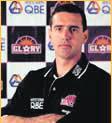
Grace. “Nowadays young people are confronted with issues such as abortion, contraception, and homosexuality from a very young age. It is so easy to buy into what the media tells us about these issues even though we might be able to see the damage they are doing to our generation,” RLO Executive Officer Clare Pike said.
“It is so rare to hear voices which help us to discover that the truth in our hearts is pointing us in another direction, another way which brings genuine happiness and fulfillment.
“So many people have been hurt in the areas of sexuality, abortion and so forth, and when they have turned to the Church they have not always encountered a loving, compassionate response.
“In addition to this, many people have trouble seeing how religion is relevant for them. But this conference challenges young people to come and experience Catholicism at its best.
“Our aims are simple,” Clare said, “to affirm the dignity of every young person regardless of their background (so they experience the value of the human person rather then just hearing or reading about

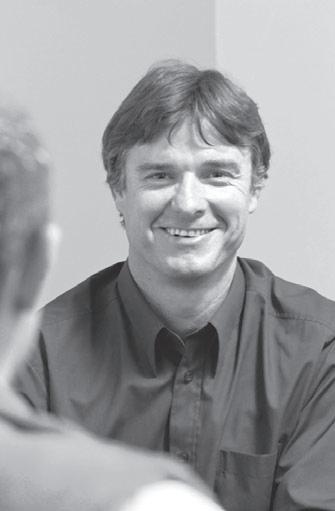
it); to acknowledge the struggle of living in today’s society; and to encourage them to discover the peace and joy involved when they ‘embrace the grace’.”
There are still places available at the conference, she said, urging people to hand a conference brochure to friends, children or grandchildren. It’s not necessary for them to be practising their faith to go to the conference.
She also appealed for donations to help young people who cannot afford the conference fee.
“This is a donation that is likely to change a young person’s life,” she told discovery
Any other financial support would be greatly appreciated and would go towards improving the experience for a young person, and professionally recording the experience for participants and future promotion.
Meanwhile, those who hold a bus licence or have access to a bus are
needed to help transport participants to the conference. The Respect Life Office can be
contacted on (08) 9375 2029 or respectlife@perthcatholic.org.au or see www.embracethegrace.net
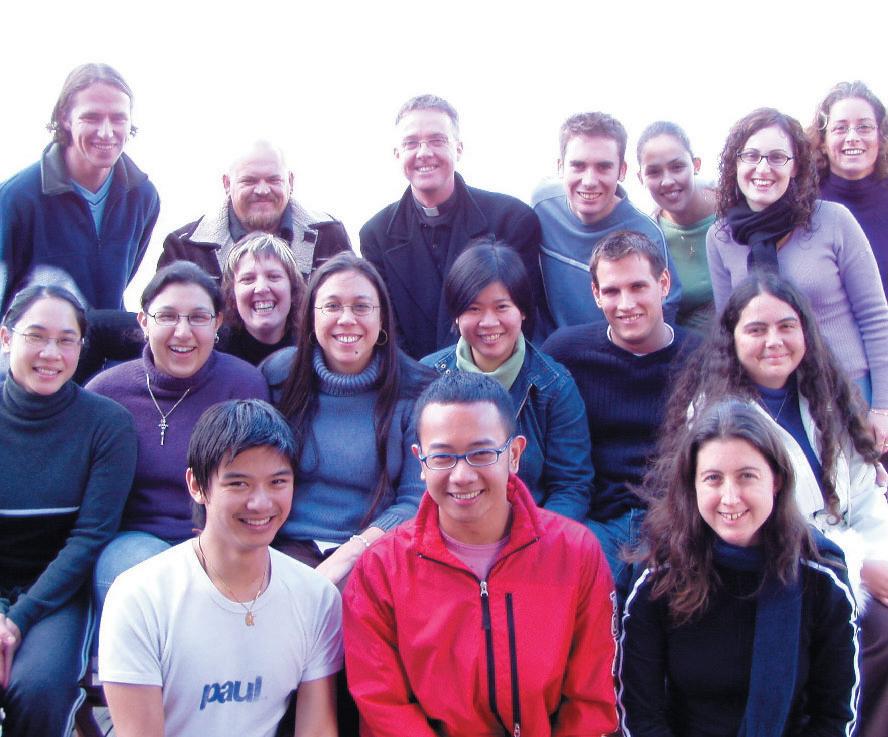

“Duc in altum!” – “Put out into the deep”.
Pope John Paul II has chosen these words of Jesus as the watchword of the Church as she advances with a firm and confident step into the third millennium. Now he has shed new light on the Holy Rosary for us too, and has entrusted it to us as a priceless means of help as we venture forth into the “vast ocean” of the new millennium. By adding the five Luminous Mysteries the Holy Father has enriched our prayer life. The Rosary booklet contains all 20 mysteries as well as excerpts from the Holy Father’s apostolic letter Rosarium Virginis Mariae, scripture readings, meditations and prayers.
This booklet is intended not only for those who have already enjoyed a Christian upbringing, but also for all those who were deprived of this and are therefore unfamiliar with the great treasure that is the Rosary. This beautifully illustrated little booklet is now available fora donation of $3.00 (includes postage). Also available are the Papal Rosary beads. To obtain the Rosary booklet and the Vatican Rosary beads we ask fora donation of $15.00 (includes postage). All proceeds will go towards the work of Aid to the Church in Need for the persecuted and threatened Church worldwide.
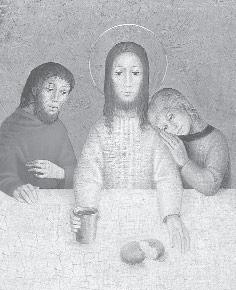
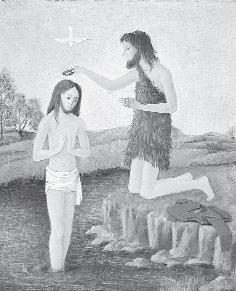


discovery October 2004 Page 5
Organisers of the Embrace the Grace Conference to be held in New Norcia
Mich D'Avray
The Rosary – Joy, Light, Sorrow, Glory Aid to the Church in Need launches new Rosary booklet Featuring the 5 new Mysteries of Light Order Form: “The Rosary – Joy, Light, Sorrow, Glory Send to: Aid to the Church in Need, PO Box 6245 Blacktown DC NSW2148 Phone/Fax No: (02) 9679-1929 E-mail: info@aidtochurch.org Web: www.aidtochurch.org Please send me: Number Amount . . . . .The Rosary booklet ($3)* . . . . . OR . . . . .The Rosary booklet and the Vatican Rosary beads ($15)* . . . . . Charity donation (optional) . . . . . Total enclosed . . . . . *Postage included. Limit of 5 copies per order Signature . . . . . . . . . . . . . . . . . . . . . . .Exp Date . . ./ . . . BLOCK LETTERS PLEASE Mr/Mrs/Miss/Ms/Rev . . . . . . . . . . . . . . . . . . . . . . . . . . . . . . Address . . . . . . . . . . . . . . . . . . . . . . . . . . . . . . . . . . . . . . . . . . . . . . . . . . . . . . . . . . . . . . . . . . . . . .Postcode BankcardVisaMastercard Payment method:Cheque/money order enclosed OR Please debit my credit card AID TO THE CHURCH IN NEED A Catholic charity dependent on the Holy See, providing pastoral relief to needy and oppressed Churches PG Beautifully illustrated throughout. Just $3 a copy or$15 forthe Rosary booklet and Papal Rosary. Alovely gift idea! Contact us for further information regarding our courses, fees and admission requirements: The Prospective Students and Admissions Centre POBox 1225 Fremantle WA 6959 • Tel: (08) 9433 0533 Fax: (08) 9433 0544 • Email: future@nd.edu.au • www.nd.edu.au The Graduate Diploma of Counselling is a one-year part time course offered in a flexible mode. The course is suitable for those professionals who are often required to do counselling as part of their job. It is especially suitable for health care professionals, teachers, supervisors and managers, human resource personnel and others in the service industries. It is possible following the Graduate Diploma of Counselling to progress to a Master of Counselling Degree. With no upfront fees, Notre Dame is more accessible than ever before* *FEEHELP is available for Australian students from 2005 Graduate Diploma of Counselling 2005
Development fund at work
The Catholic Development Fund of Western Australia is building.
Building up the Church that is. Fund Manager Brian Parry said the CDF has been doing extremely well over the past 10 years.
“More and more people are coming to know about the Fund,” he said.
Known as the Archdiocesan Development Fund until 1999, the Fund commenced in 1974.
The Fund's principal activity is the acceptance of deposits from parishes, schools, Catholic agencies, religious orders and individuals and the provision of loans to such entities with the exception of the layity to finance approved capital works.
In a recent report from the Fund, Archbishop Hickey said the Fund has grown into one of the major organisations supporting both the spiritual and temporal fabric of the Archdiocese of Perth. The CDF also services the needs of the Dioceses of Geraldton and Broome.
Mr Parry also said the Fund has made more use of electronic banking and is increasing its services for aged care. Among the most recent projects, new facilities have been completed at John XXIII College in Claremont and Trinity College in East Perth and at several parishes.
“We are currently involved in the proposed building of independent living units at Mercy Care in Wembley.
How active are you?
Research to focus on raising physical activity levels in WA children
University of Notre Dame Australia researchers will target about 900 West Australian primary school children in a bid to increase the amount of physical activity they do each day.
The new research project will be launched in about 30 metropolitan primary schools early next year.
Notre Dame School of Health and Physical Education Senior Lecturer Dr Beth Hands said the project’s aim was to promote higher levels of physical activity in school children.
“Raising the amount of physical activity in children is extremely important. Children are spending more and more time sitting, for example watching TV or playing computer games,” she said.
“Yet we know that in order to be healthy we need to be active everyday.


“The project will target children in Year 3 and will encourage them to become responsible for their own physical activity level.
“We’re not going to say that they must exercise for a certain time, for example 30 minutes. This doesn’t mean a lot to children.
“Instead, we will encourage them to be moderately to vigorously active at least five times each day.”
Dr Hands said schools and families involved in the project would be given resources to help with the study including diaries for children to record their daily activity.
She believes children can be responsible for their own physical activity.
“We believe that if we can help the children see how easy it is to be physically active at various times of the day and
show them what they can do, they will ultimately become responsible for it themselves,” she said.
The research is being conducted with funding worth $65,000 from the Telstra Community Development Fund.
Metropolitan schools interested in participating in the research project can contact Dr Hands on 9433 0206.
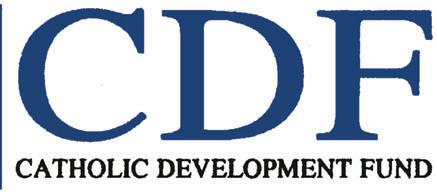
discovery October 2004 Page 6 Show you care for their future! We all want to give our children the best possible start in life - and a good education is the best start you can have. The CDF Education Fund helps you save regularly and easily for your child's educational future. You'll receive an excellent return on your money , plus the following benefits. No account keeping fees Completely secure Start with a low deposit and add to it Available for primary, secondary and tertiary students Open one account for the whole family or an individual account for each of your children. Kickstart your child's future - call us today on Perth Brian Parry 9223 1339 Mike Papineau 9223 1338 Brian Bonser 9223 1334 Geraldton Gwen Voigt 9921 3221
Outback Mum
200 kilometres from the nearest town.
 FBy Raelene Hall
FBy Raelene Hall
ather blessed Kelly and congratulated her on her first Reconciliation. I sighed with relief, then thought ‘First Communion next – help!’ Not exactly the way to be thinking about your child’s next Sacrament in their Catholic upbringing but these days it is exactly how I feel.
Home for my husband, our three children and myself is a cattle station in the East Gascoyne region of WA – 214kms from the nearest town and a 1000 kms from Perth. It’s a family run property with my father, mother and brother –in-law living here also. Our eldest son joined the family working team last year, meaning 3 generations work the property together.
Both my husband and I were brought up Catholics and agreed we would bring our children up as Catholics. However with the nearest church 200kms away, Mass only held on a Saturday evening and no other Catholic families close by it was never going to be

a very stressful time for me with both my parents passing away within 6 months of my second son’s birth, and I struggled to cope with grief, loneliness, and a feeling of inadequacy for the task of bringing up our children, being their school teacher and religious instructor.
I’m not sure I would ever have
"Whilst communications have vastly improved over the years we have lost the heart of the community –it’s people. Everywhere people are selling up –the drought, commodity prices and the cost of education all having their impact. There are fewer people to share your thoughts and concerns with and many properties no longer have families on them."
easy.
Communications, when we married, were basic, a fortnightly mail service and contact with the outside world via HF 2 way radio, which allowed no privacy at all. Often weeks went by without seeing anyone and there was no popping down to the corner store if you forgot the milk! Not an easy life for a ‘people person’ like myself.
made it without the assistance of the wonderful Good Samaritan Sisters, based in Mt Magnet, 400kms away. These amazing women drove all over the vast, outback countryside, bringing religion, friendship, hope and love to people such as myself. They wrote and produced religious educational booklets, which allowed you to work with your children, and prepare them for the Sacraments.
stays were organised in the nearest town to join with other children in last minute preparations for the big occasion. A celebration cake, made by one of the sisters, would be a highlight of the supper, which always followed Mass.
When our daughter arrived in 1995 (our little surprise package!) the boys were seven and ten. I had been teaching them both since pre-school (via School of the Air) as well as doing my best to ensure they also completed some religious studies. The eldest celebrated his First Communion at the same time as his sister was baptised. All too soon our eldest son was off to boarding school, followed a couple of years later by his younger brother.
In the same year our younger son went to boarding school his sister began Year 1 with School of the Air, so after ten years of educating the boys I was back to square one, starting another seven year stint in the classroom. Whilst I’d not always enjoyed those years of teaching the boys, I’d managed to maintain a reasonable level of enthusiasm for the job. However I soon found starting all over again mentally and physically exhausting.
schoolwork I now found myself cutting corners and taking shortcuts whenever possible.
I still find it hard to admit I feel the same way about my daughter’s religious education and whilst I still want her to have a Catholic upbringing and to know her faith I don’t want to be responsible for that–at least not fully. We still have support from our wonderful Good Sammy nuns (as they are fondly known) but there are only a few of them and this is such a vast land to cover.
Whilst communications have vastly improved over the years we have lost the heart of the community –it’s people. Everywhere people are selling up –the drought, commodity prices and the cost of education all having their impact. There are fewer people to share your thoughts and concerns with and many properties no longer have families on them.
My sons, as all older children do, believe their sister is spoilt. I’m constantly told ‘we were never allowed to do/say that,’ and they are right. Back then I was still trying to be the perfect wife, mother, teacher, nurse, friend, referee and whatever else was required of me. Today I just don’t have the energy or inclination to strive for those same levels.
I still want her to make her First Communion, in church with a pretty white dress and her veil, to be confirmed and to have a strong understanding of her faith before
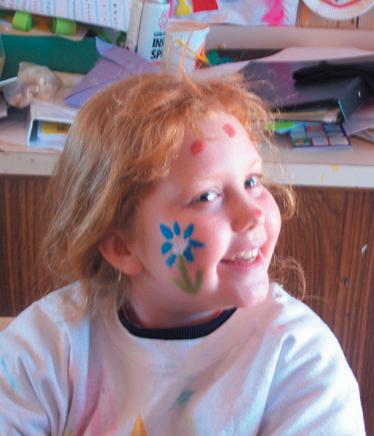
she goes to boarding school in another three years. What worries me is that it is basically down to me (with the support of my husband) to ensure this does happen. Can I do it or will I let her, and myself, down?
Some days I just want to run away and hide. I want to be the child again and for someone else to deal with all the problems, issues, queries and questions. These are the days when I have to find strength and hope from somewhere else. It may be in the phone call from our son, the acceptance of a writing piece or the sheer beauty of an outback sunset. Perhaps it is the hug from my daughter, the joke I shared with my husband or the crazy antics of our dog. Or perhaps it is the hand of our Lord in all of these.

Our first two children, both boys, were born 2 years apart. This was

When the children were due to receive their Sacraments, overnight
By this stage of my life I had begun working on a freelance writing career and school hours encroached on my writing time. I found myself getting short with my daughter and resenting her wanting me as playmate, because she had no one else. Whereas once I had prided myself on making sure my children completed every last exercise and activity in their
discovery October 2004 Page 7
Kelly Hall at home during a class. Lessons are conducted over the outback School of the Air.
The Hall sons Matt and Ken after a hard day's work on their family's station at Ned's Creek in the Gascoyne, about 1000 kilometres from Perth.
Home for Raelene and her family is a cattle station in WA's vast East Gascoyne region.
RAELENE HALL tells of the joys - and difficulties - of raising a family in faith when you're over
WORLD YOUTH DAY is
on again next year in Cologne, Germany. As in previous years, it promises to attract massive crowds of young people from around the globe.

Catholic Youth Ministry officials are already gearing up and making preparations for the large numbers of
youth who will make the journey for an experience they will remember for the rest of their lives.
For the adventurous pilgrim, several options are in the planning stage. Want to be there? Bookings are available now for what is shaping up to be....
One very big Party
Indonesian-born Daryl
Pranata was educated at Aquinas College. These days he is an engineer. Here he reflects on the ways in which being part of World Youth Day celebrations - along with a million or so other young people - can have a profound effect.
By Daryl Pranata
Ihave been on many trips with my family and friends, but none was as exceptional as my World Youth Day (WYD) pilgrimage to Toronto in 2002, and, leading up to it, to France with the Perth group. My WYD trip was exceptional, different and will never be forgotten.
My old parish priest, Monsignor James Nestor, retired in January this year. He no longer lives in our parish and I no longer see him on a regular basis. But he will always have a special place in my heart because without him would not have gone to Toronto and would not be what I am today.
The WYD gathering is an international event, a party hosted by Pope John Paul II, and everyone is invited from every corner of the world. We all went
there to be with each other, to be with the Holy Father, to be with Christ. We came from many different places and backgrounds but we were united by our desire to serve Christ, and by joy. It was, indeed, a party. And yet in the midst of this joyful atmosphere, we were reminded by the Holy Father that there are still too many people in this world who are born and die without knowing the experience of joy. We were asked to remember them and pray for them.
An event where around half-a-million young Catholics gather together cannot be an ordinary one, surely; and it wasn’t. This was an event where pilgrims ‘invaded’ and effectively took over the city of Toronto. This was an event where members of the clergy were treated like celebrities; and, of course, the superstar was Pope John Paul II himself. The joy and admiration on the faces of the pilgrims when the Pope drove past them are indescribable, as if seeing the Pope was the best thing that had ever happened in their lives. It probably was. We all returned from this pilgrimage physically exhausted after two days of staying and sleeping outdoors, not to mention the extremely long walks. As God’s people we have learnt that a journey to be with Christ, e.g. through an event like this, is not always an easy one. Mental and physical challenges will exist. Weather conditions may
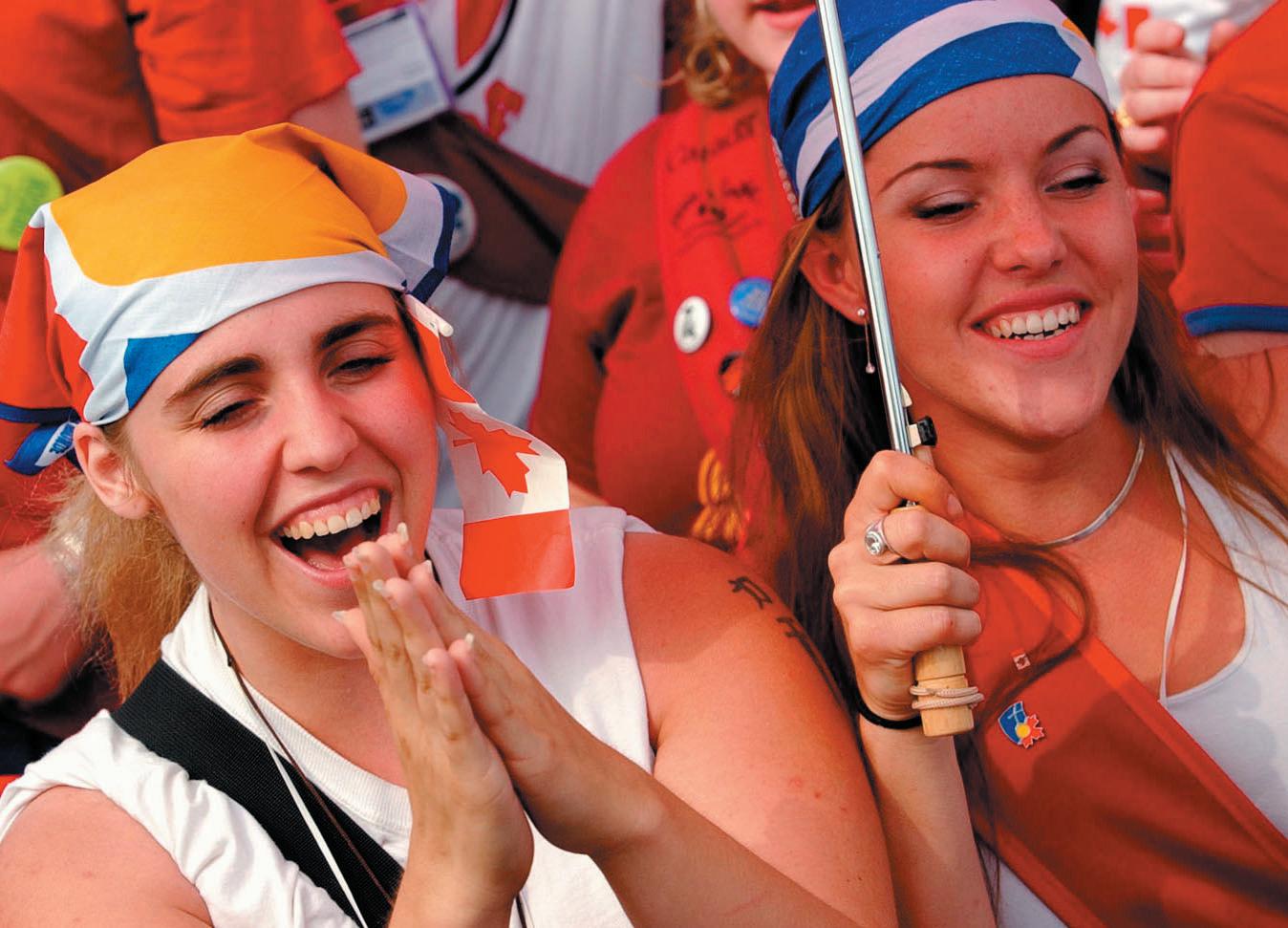
Three options... and the experience of a lifetime
Young people planning to participate in World Youth Day in Cologne, Germany, in August next year are being offered several travel options as part of the Perth Archdiocesan WYD Faith Journey. The tour will be led by Bishop Don Sproxton in place of Archbishop Barry Hickey who has previously led WYD tours to Manilla, Rome and Toronto.
Fr Don Kettle and Lucas Hurley, both of the Catholic Youth Ministry, will also act as leaders of the Faith Journey. They are currently organising the travel arrangements.
Fr Kettle said preliminary details of the travel options were being released now so that parishes, families and individuals can register and begin planning their schedules and finances. Travel is arranged in three tiers.
“World Youth Day promises to deepen in the hearts of our young people their faith and trust in Jesus Christ,”
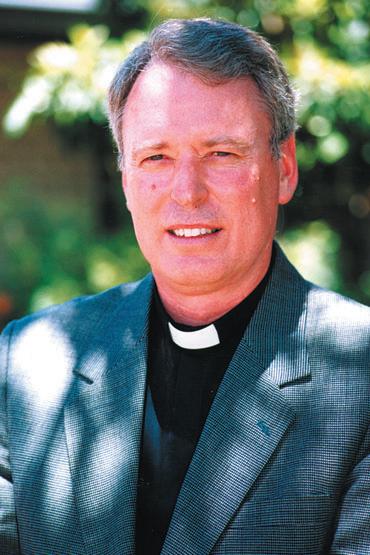
$1290 respectively. These figures include flights, transfers and accommodation.
The Archdiocesan Faith Journey is open to people 16 years and older, but 16 and 17 year olds must be accompanied by an adult guardian.
not be good. The accommodation and the food served may not be up to your standards. The question is: is it worth the challenge? Is it worth the sacrifice?
My answer is: yes. Does it all end when you return? My answer is: it does not have to.
I give you my word when say that this is the opportunity for you to meet some of the greatest people you will ever meet. These are the people who are truly good and will always be good, no matter how bad the state of the world we live in.
You will meet fellow pilgrims who will fascinate you and inspire you to aim higher in your spirituality and your relationship with Christ and each other. Knowing these people will open more doors. You will learn about many things you never knew before. Embrace all these and you will live out the theme of the 2002 WYD: “You are the salt of the earth, you are the light of the world.”
The essence of WYD 2005 in Cologne was expressed by Pope John Paul II at the closing Mass of WYD 2002: “In the great Cathedral in Cologne are honoured the relics of the Magi, the wise men from the east who followed the star which led them to Christ. As pilgrims, your spiritual journey to Cologne starts today. Christ awaits you there for the twentieth World Youth Day. May the Virgin Mary, our mother on our pilgrimage of faith, be with you on the way.”
In the footsteps of the great communicator
The Pathways of St Paul will give young WYD participants a wonderful opportunity to soak up the beginnings of Christianity before they move on to the extraordinary gathering in Cologne, according to Fr Don Kettle, one of the leaders of the Perth tour. It will also give them an insight into what awaits them in Cologne where the world’s youth will gather with Pope John Paul II because they will share the Pathways of St Paul with groups from other Australian dioceses, New Zealand and Indonesia.
The tour starts in Istanbul, once Constantinople and the capital of the Eastern Roman Empire, with Mass in the Catholic cathedral of St Espirit, and tours of such places as the Blue Mosque, Topkapi Palace and the Grand Bazaar.
The following day will take in Gallipoli and Anzac Cove and time at eight specific landmarks to honour and pray for the souls of the young Anzac heroes of 1915. Then come Troy, Assos, Alexander Troas where

will be celebrated in the imposing Monastery of St John the Beloved.
The cruise will include opportunities to explore the islands of Tinos and Syros. In August, thousands of pilgrims visit Tinos, which is considered sacred to the Virgin Mary.
After a visit to Corinth where St Paul lived for five years, the cruise will end at Athens where there will be time to visit the great sights of this ancient and modern city.
Tier 1 will leave Perth on August 4 and fly to Istanbul to begin a nine-day tour of Turkey and Greece known as the Pathways of St Paul (see story at left).
While focussing on the historic links with St Paul’s missionary activities, the work of St John the Evangelist, and the Blessed Virgin Mary at Ephesus, the tour will include many sites of great natural and cultural interest as well as a special Australian diversion to Gallipoli. The group will fly from Athens to Frankfurt and join up with Tier 2 at the nearby Mt Schoenstatt Shrine before moving on to Cologne for the WYD program, returning to Perth on August 22.
To maximise the benefits of the trip, particularly for those going on the Pathways of St Paul, the CYM will hold monthly meetings for participants beginning on the first Saturday in February next year. Further meetings will be held for three months after WYD so that young people can build on their experience.
The CYM has also produced a Parish planning kit for parishes wanting to get involved in fundraising to sponsor their young people.
People interested in being part of the archdiocesan party should log on to cym.perthcatholic. org.au and follow the links to World Youth Day and Harvest Pilgrimages.
St Paul spent seven days and talked all night, and Pergamum, one of the Churches of Revelation and the place where Romans first persecuted Christians.
A visit to Ephesus has strong links with early Christianity through St Paul (the Letter to the Ephesians), St
John the Evangelist (a Basilica has been erected over his tomb), and the house in which the Blessed Virgin Mary is believed to have spent the last years of her life on earth. A chartered cruise ship will take the party to Patmos where St John wrote the Book of Revelation. Mass
To ensure that travelers maximize their enjoyment of this trip and their appreciation of the remarkable energy and dedication of the early Christians such as St John and St Paul in spreading the good news about Jesus Christ to all who would listen, the CYM will hold meetings on the first Saturday of each month from February 2005 onwards. As well as giving people the chance to meet one an other, the meetings will provide information about the sites so that the spiritual history of the region is not lost in a blur of the unknown.
Tier 2 will fly from Perth to Frankfurt on August 12 and move on to the Mt Schoenstatt Shrine and the Cologne experience with Tier 1. This program has been kept short to accommodate university exam times next year.
Tier 3 is a seven-day Fatima experience after Cologne, returning to Perth on August 29, as an add - on to either Tier 1 or Tier 2.
Fr Kettle said that travel and accommodation were being organised through Harvest Pilgrimages.
Costsare subject to variation, but reliable estimates for the three tiers were $4295, $2875 and
The theme of the Cologne World Youth Day is “We have come to worship Him”, taken from Matthew 2:2, a reference to the Magi whose relics are honoured in Cologne Cathedral.
Bishop Sproxton said that every WYD had been an extraordinary experience for those who participated and there was no doubt that it would be the journey of a lifetime for those who travelled in 2005.
“World Youth Day promises to deepen in the hearts of our young people their faith and trust in Jesus Christ,” he said. “We will do our best to maximise the experience during the pilgrimage and to ensure that it becomes a lasting inspiration for their lifelong faith journey.”.
discovery October 2004 Page 8 discovery October 2004 Page 9
Bishop Donald Sproxton
Blue Mosque - Istanbul
A million or more young Catholics together has to be a special experience.
Photo: CNS
Sam and Bethany Torode went looking for guidance on contraception as they prepared for marriage. As Protestants they found little. The result? Protestants should be sympathetic to the Catholic Church’s position, they say.
Double take
By Sam and Bethany Torode
“Dearly beloved,” the minister began, “we are gathered together here in the sight of God, and in the face of this congregation, to join together this man and this woman in holy matrimony.”
The congregation was silent in rapt attention, except for the occasional cry of a disgruntled baby with little interest in the sacred occasion at hand.
“Marriage is an honourable estate,” the minister continued, “and not to be entered into lightly, but reverently and soberly, duly considering
the causes for which matrimony was ordained.”
“First, it was ordained for the procreation of children.”
At this point, a guest later reported, the calm was interrupted by an involuntary snort of disapproval“humpf!” - from one of our relatives, who crossed her arms in dismay at such an archaic notion.
That snort summed up a good deal of modern thought on childbearing. In the US and western Europe, married couples are having fewer and fewer children, thanks in large part to the wide availability of contraceptives, along with the rise of dual careerism in marriages.
Growing up, neither of us was
taught to oppose contraception on principle. Sam knew that the Catholic Church officially forbids it, but assumed this was a superstition left over from the Middle Ages. Birth control was never mentioned in his Baptist church. In high school, his friends ridiculed the Catholic position - for them it was enough to quote the lyrics from Monty Python’s satirical song, “Every Sperm is Sacred.”
One afternoon in university, a friend of Sam’s remarked that she had just read an article explaining why the pope was so opposed to contraception. “I still don’t agree with him,” she said, “but I was surprised that he actually had reasons.”


Sam’s curiosity was piqued, and he decided to research the subject for himself. But, with no prospects for marriage in the near future, he didn’t give it too much thought. As a teenager, Bethany occasionally discussed contraception with her best friend. Though her mum had taught her to be wary of the Pill and other hormonal contraceptives, Bethany still argued in favour of barrier methods such as condoms. At age 16, she volunteered at a Crisis Pregnancy Centre staffed by women from a variety of church backgrounds. She was surprised to learn that they didn’t recommend any form of contraception, not even condoms, for their married clients. Instead, the staff counselled women to become aware of their fertility cycle and to use natural ways of spacing births. After receiving a folder on these natural methods during her training, Bethany promptly slid the information under her bed and thought, “I’ll figure out what I believe about all this later.”
The time to figure out exactly what we believed about contraception came sooner than either of us expected. We met in January of 2000, became engaged in May, and married in November. During our courtship, the topics of birth control and having children came up early in conversation. We wanted to make wise decisions in these areas and knew that the issue of contraception wouldn’t go away by ignoring it. Unfortunately, we could find little wisdom on the subject from our fellow Protestants. In most of the popular Christian relationship guides, it is simply assumed that couples will be using contraception and that this does not affect their marriage or “sex life.”
By the time we were engaged, it was clear to us that for love to flourish, we had to grow in knowledge of and respect for each other’s bodies - not just our minds and souls.
Thanks to a little thing called PMS, Sam quickly realized that understanding the female fertility cycle is not an option - it’s a vital part of learning how to love your spouse. You ignore it at your peril. He wondered: Why shouldn’t the fertility cycle be respected when it comes to sex? Why shouldn’t husbands conform their desires and actions to the natural rhythms of their wives’ bodies, rather than ignoring or suppressing them? We decided it
was time to look into those natural means of child spacing.
We enrolled in a Natural Family Planning (NFP) home study course. Sorting through all the information was a bit daunting at first, but the more we read, the easier it became to grasp. (In hindsight, we know the best way to learn NFP is from a teacher, not a book. But at the time, we mistakenly thought that a group class would be too embarrassing.) By studying NFP, we learned far more about our bodies’ complementary designs than we had ever been taught by doctors or health instructors. More than that, we were prompted to communicate with each other on a deeper level than before and were immersed in what we found to be a profound, biblical perspective on the meaning of sex. Learning NFP is the best way we can imagine to prepare for marriage.
Initially, we were interested in NFP because we hoped to avoid having a baby right away. Though we both love children and want to have a passel of them (whether by birth or by adoption), we figured it would be best to wait until Bethany had finished college. That was the advice we were given.
But as our wedding day approached, we found ourselves more and more looking forward to having a child, and we decided not to put off having a baby for our own convenience or because we were afraid our marriage was not yet ready for such a test. God’s timing is different for every couple, and some have legitimate reasons for postponing children immediately after marriage, but we did not. We knew this was a responsibility to be approached with fear and trembling but believed that by inviting new life we would grow closer in ways we had yet to fathom. Love, we discovered, cannot be contained in just two bodies.
Sam & Bethany Torode are freelance writers and graphic designers who live in rural Wisconsin with their son, Gideon.
This article is adapted from the introduction to their book, Open Embrace: A Protestant Couple Rethinks Contraception (available from discovery ; see review on next page).
discovery October 2004 Page 10

Review

 Sam and Bethany Torode
Sam and Bethany Torode
Kylie on
Reviewed by: Mary Shivanandan
IIn all the turmoil and savagery of the Chinese Government’s enforced one-child policy, Chinese people, with Government support, are developing a strong preference for natural family planning through the Billings Ovulation Method, developed in Australia by Melbourne doctors, John and Evelyn Billings.
The Australian success in China has recently caused a stir in the US where the leading Catholic newspaper Our Sunday Visitor devoted a four-page spread to the story.
The Billings published a book




n 1930 the Church of England at the Lambeth Conference approved the use of contraception in marriage. The ruling acted like a catalyst. In quick succession all the Protestant churches followed suit, annulling a 2000-year old Christian ban on contraception. The Roman Catholic Church alone remained faithful to the tradition. Periodically a few Protestant authors such as Ingrid Trobisich and Elizabeth Elliott praised natural family planning. Notwithstanding, contraception became the norm for married couples, even among such major family movements in the United States as James Dobson’s Focus on the Family.
Now a young couple are challeng-
ing their fellow Protestants in Open Embrace: A Protestant Couple Rethinks Contraception. Unlike most couples, even the majority of Catholics, getting married today, Sam and Bethany asked questions about birth control and took a course in natural family planning. Finding almost nothing in their tradition they set out to write a book, not to condemn but to show their co-religionists “a better way.”
The first part of this brief attractively designed book presents the beauty of Scriptural teaching on the imago Dei, the one-flesh union of marriage and the language of the body. As John Paul II develops the theme, the body itself speaks a language of fidelity or infidelity in
conjugal intercourse. To withhold any part such as fertility is to falsify the language of total self-gift. The second part shows the relationship of contraception to abortion and explains the abortifacient potentialities of the hormonal contraceptive pill. It also reminds the reader that the early Christians lived in just as sex saturated a society as ours and yet it was precisely at that time that the Church put in place the ban on contraception. On a positive note this section extols the benefits of natural family planning, especially the increased communication it fosters . The last part, written by Bethany, chronicles the joys and challenges of having a baby.
Sam and Bethany are still young,
in their early twenties. Some may question whether they have yet been tested. Their arguments, however, do not depend on age or experience. In five or ten years from now perhaps they will update the book and give the lie to those who might dismiss it for that reason now. As it is, it presents the truth in a refreshingly clear and concise way.
Open Embrace deserves a wide audience among both Protestants and Catholics..
Sam and Bethany Torode have a web site, www.openembrace.com where you can see excerpts from the book.
Professor Mary Shivanandan is Professor of Theology at the John Paul II Institute in Washington.
China buys ‘Australian made’
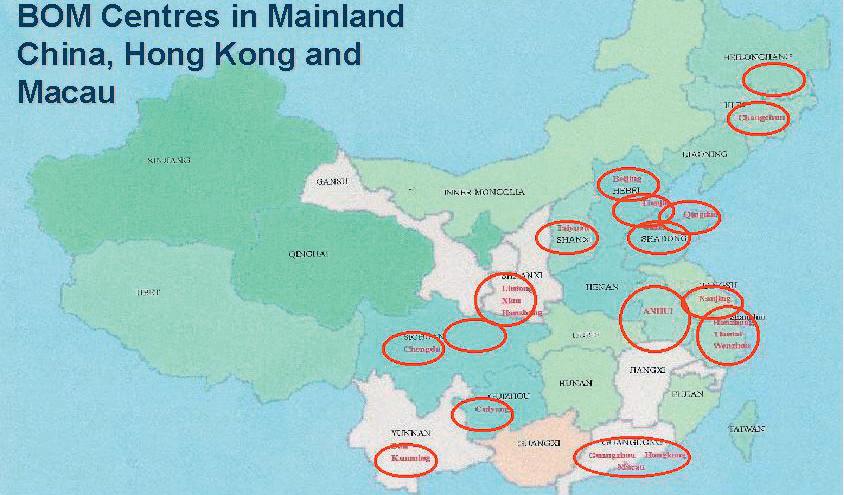
about their method in 1963 and in 1968 began teaching it overseas – first in New Zealand, then Hong Kong, Singapore and Malaysia. It proved remarkably effective

in planning the postponement or achievement of pregnancy in all cultures, educational levels, and all socio-economic groups. It was also effective in encouraging
fidelity and enriching the intimate relationship of marriage. The natural approach to fertility control was swamped in Australia and other parts of the world in the 1960s and 70s by the drug companies promoting their chemical solutions, then intrauterine devices (IUD) and finally surgical sterilization. Despite continued success in properly conducted trials, natural family planning was not promoted in the media or by health authorities in many countries or by the UN.
The Chinese Government became aware of the success of the Billings’ method (BOM) and in 1986 invited them to give lectures on NFP in Beijing, Shanghai and Nanjing. The BOM took off and after a number of trials the Chinese Government made an official statement in 1995 that BOM was to be received as an acceptable option for couples being instructed in the compulsory program restricting families to one child (as a rule). Today there are
more than 50,000 Chinese teachers teaching the Method and more than 3.6 million couples using it with an overall success rate of 98 to 99 per cent.
Dr Evelyn Billings reported to the Pontifical Academy for Life this year that BOM had achieved a marked decline in abortions (often forced). Where the method is taught, only 0.6 of one per cent of pregnancies end in abortion, compared to more than 4 per cent in areas where it has not been introduced.
Part of the problem for NFP in Australia has been an attitude of ‘the rest-versus-Catholics’, with the result that the media, some health officials and some politicians ignore the facts about NFP in favour of snide remarks about ‘old men in the Vatican’ telling couples what to do.
The Chinese Government and couples have no such problems and treat NFP on its merits, with remarkable results.
“How can I find the love of my life?”
“Isn’t annulment just Catholic divorce?”
“Can one not be a virgin yet change and be whole again?”
“Exactly how far is too far?”
“Is it normal to fantasize about having sex - I mean, all of the time?”
“Can you give me something more neutral to say in an intimate moment than ‘excuse me, let’s be chaste’?”

Mary Beth Bonacci speaks to nearly 100,000 people every year around the world - about friendship, about relationships, about marriage, about God’s plan for sexuality, and about finding real, honest love.
And people speak back to her. They ask her questions - about sex, about dating, about healing after a shattered relationship, about marriage, about their struggles to live love. Their questions are real, specific and often very poignant. Now, for the first time, Mary Beth has published those questions - and her answers - in a comprehensive, readable guide which addresses the details of the very real struggle that people face in trying to live real love in a world gone mad.
discovery October 2004 Page 11
Do you want... ‘Pizza Love’ or the REAL THING? Real Love by Mary Beth Bonacci is a publishing sensation around the world! Just $25 plus postage Available now from discovery PO Box 75 Leederville WA 6902 Or call Kylie on (08) 9227 7080 This book is an IDEAL presentation for teenagers, parents, teachers and educators about sexuality, marriage and the real meaning of what’s most important in life. Now Available! Open Embrace: A Protestant Couple Rethinks Contraception By:
from discovery
or $20
Available
$18.50
inc. postage
Contact
(08) 9227 7080 or administration@therecord.com.au
LOOK AGAIN: suburban myth believes that Natural Family Planning, including methods such as the Billings Ovulation Method, is an innaccurate hit and miss affair. Not so, says the People's Republic of China. They should know.
Life beyond Sudan
 MBy Jamie O'Brien
MBy Jamie O'Brien
any of us have heard about the tragedy unfolding in Sudan, but few people in Australia would actually understand it better than a group of Sudanese students at Aranmore College. The students are attending the Intensive Language Centre before being integrated into standard classes. Head of the Intensive Language Centre Gregory Lowe said the first task in working with the refugee students is to build up their confidence.
“There are many support services available such as Catholic Migrant Services and ASeTTS (Assisting Torture and Trauma Survivors),” Mr Lowe said.
“We prepare them for mainstream school and that is obviously a big need.
“We give them that sense of belonging and that is really important.”
Only after talking to the former refugees on two occasions, was I able to get a grasp of their experience as refugees.
John Maker, 16, Elizabeth Maker, 16, John OKeny, 17 and Moses Mating, 17 all have a unique and courageous story to tell about the depths of the war in Sudan and their journey to Australia.
Each one lived in the south of Sudan, and like many other people they know, have had to escape, without family, possessions or knowing what would happen when they arrived at the refugee camp.
“Basically the Janjaweed just come and fire in the street and you have to take cover or get on the ground,” said John Maker.
“Boys from 15 years and older are taken and made to train and fight against their people.”
The Janjaweed have kidnapped relatives and friends of John Maker, John OKeny and Moses.
They have not seen their relatives and friends again and to their knowledge may be fighting against the Sudanese people.
John Maker, who arrived in Australia early last year, says he came for a number of reasons.
“To get a good education but also to be safe,” he said.
“If I was still there I could be taken as a child solider, because I have turned 16.”
He is talkative, and eager to tell his story.
Originally from the city of Rumbek, John lived with his grandmother most of his life, because his parents had been persecuted by the Sudanese rebels.
Together with his two brothers, two sisters and grandmother, the family fled to the refugee camp in Kakuma
in 2000, where he first met his parents.
Although only 13 when he was there, John spoke about the difficulty of living in a refugee camp. Sudanese leaders make it difficult for refugees to get frequent and adequate supplies of food and water.
“UNHCR gives leaders rations and they sell it to us again because they need the money,” he said.
Elizabeth Maker (no relation to John) has a similar story to tell. Her parents are still in Sudan, and to her knowledge in Rumbek.
Elizabeth lost her two brothers because of the violence by the Janjaweed.
She fled to the refugee camp in Kakuma with her brother and cousin. Her uncle was already living in Australia and helped make the neces-
have probably got married, as for women to continue their eduction past the age of 11 or 12 is not encouraged. Her dream is to become an accountant.
“This would never have been possible should I have continued living in Sudan.”
John learnt to speak Arabic, in addition to already knowing the native language of Sudan and Uganda. Schools fees were also a problem because his parents were unemployed.
He describes the feeling of arriving for classes at Aranmore Catholic College earlier this year as one of apprehension and nervousness.

The United Nations High Commission for Refugees is the Aid Agency, along with a number of other agencies, that controls the supply of rations, water and how the refugees live.
He stayed at the camp in Kakuma for a year before going to Nairobi, in Kenya and then to Australia with his mother and siblings.
His father is in the process of coming to Australia.
“In Sudan people are being killed like chickens, there are no blankets and people are homeless.”
Prior to leaving Rumbek, John said throughout the day he would look after the family cattle, predominately cows, as that is where the family meat and milk supply would come from.
He hopes that one day, peace will come to Sudan, and that he can get on with his life.
“I would never have been able to come to Australia if it wasn’t for my uncle who worked so hard," he said.
sary arrangements for her arrival.
After fleeing to Kakuma in about May last year, she then went to Nairobi and from there arrived in Australia.
She was nervous about coming to a foreign land.
“I didn’t believe that it was going to happen,” she says with a smile.
“There were so many forms to fill out and hospital check ups.”
The look in her eyes shows she has a very deep and lasting memory of the events she experienced while in Sudan.
She says her memory of Sudan is one of much pain and anguish. She brought with her only a few possessions.
After speaking to Elizabeth for a while, I asked her about some of the differences of life in Sudan and life here in Australia.
“In Australia, there is good education, nice food, and I can get a good night’s sleep without hearing the bombs.”
Her experience in the refugee camps was not one of comfort. Attacks by natives of Kakuma were frequent, simply because they were a different culture.
Had she stayed in Sudan, she would
As one of thirteen children, John OKeny is the only one from his immediate family to have made it to Australia so far.
He arrived in Australia in September last year, and now lives with his aunty and stepbrother.
His father died when he was four. Originally from the town of Pajong, at the age of about three or four John and his mother walked with a number of other refugees to Uganda. He lived most of his life there until a couple of years ago when he went to live with his aunt in Nairobi, Kenya before coming to Australia. The ten years he spent living in Uganda were at a refugee camp in Kiridongo, first living in a tent and then later building a house of mud and straw.
He says each day was centred on survival, such as planting maize and beans for food. He came to Australia with the help of his cousin who was already living here.
Education has been one of the main reasons John looked forward to coming to Australia.
“All the students in Sudan speak Arabic, so if you try to communicate with them there is a difficulty,” he said.
In 2002, before coming to Australia,
“It was everything that I expected but I was still cautious because of my lack of English and the colour of my skin,” John said.
“In Sudan, most children don’t go to school because they are looking after the cows, going to the gardens and helping their parents at home.”
“The children who do go to school are those who have relatives in other parts of the world who can pay for them.”
“In Sudan people are being killed like chickens, there are no blankets and people are homeless.”
John recalled a situation when he was living in Uganda and the discrimination he faced, simply because he was from a different culture.
“My mother was beaten like a cow because they thought my father was from the milita,” he said.
John also said that if soldiers capture the wife of a militia, she is killed.
“I had to run and hide in the bushes with my sister,” John said.
The look on Moses Mating's face is one of fearlessness. However he cannot hide the joy of being in Australia.
He comes from the town of Rumbek and arrived in Australia with the idea that he would get a better education.
Together with a friend, he made the journey to the refugee camp in Kakuma by plane and paid for the journey by selling his cows.
In Sudanese culture, it is common for young people to move independently of their families.
From there he went to Nairobi, Kenya and together they came to Australia.
He also knew John Maker in Sudan, and met him again in Kakuma, and was surprised to see him again in Australia.
He says the first impressions of Australia were difficult to cope with as he found school difficult.
“Although I began school in Sudan in 1999, what I learnt was very different,” he said.
“English was just very basic grammar.”
In addition to witnessing murders of neighbours and friends, Moses’ own father, who was a solider was killed by the Janjaweed in 1995.
Moses says he hopes to be able to go back to Sudan one day to be part of the rebuilding.
“My hopes for the future are that one day my country will be at peace and the next generation will not have to experience a war like this one.”
discovery October 2004 Page 12
Photo: Jamie O'Brien
From Left: Elizabeth Maker, 16, John Maker, 16 with Intensive Language Centre Director Mr Gregory Lowe next to Moses Mating, 17 and John OKeny, 17. The four Sudanese students are making a new life for themselves in Australia.
Life,gifts and faith
Two young men step out of their comfort zone
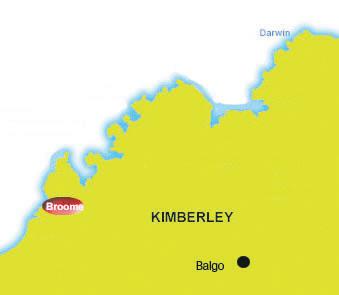 By Jamie O'Brien
By Jamie O'Brien
The physical contribution of two young men, one from Melbourne the other from Canberra, is making a difference to the community of Balgo-Kutjungka, approximately 1000km from Broome.
22-year-old Joshua first arrived at the Balgo community in 1999 and stayed for three months before returning home to Glen Waverley, Melbourne.
Although Joshua didn’t know anything about Balgo prior to his arrival, he said he didn’t feel out of place when he began working there.
“I didn’t know there were places in Australia where they still practised the Aboriginal culture,” Joshua said. Joshua said the people of Balgo’s acceptance of him is what made him return last year.
“It’s been a real experience to spend time learning about the true culture of Australia,” Joshua said.
“People know more about American culture than Australian culture these days,”
Upon his arrival in the BalgoKutjungka community in 1999, the local Aboriginal people gave Joshua a ‘skin’ name Tjangala, which determines who he is, where he comes from and who his parents are.
He says his most memorable moment at Balgo has been when the local community gave him an Aboriginal dot painting for his 22nd birthday.
Parish Priest Fr Matt Digges said the services of Joshua and Greg have been very valuable in the BalgoKutjungka Community.
“The Church in the Kimberley has relied on vibrant and generous young Catholic people who come to share their life, gifts and faith with the Aboriginal people.”
“Both Joshua and Greg have been prepared to step out of their comfort
zone,” Fr Matt said. 18-year-old Greg Strangman, from Canberra came to volunteer his time at the BalgoKutjungka community through the recommendation of his Aunt, who had also been working there prior to his arrival.
Greg says it has given him time to decide what he would like to study at University.
His most memorable moment since being in Balgo has been at the celebration of Easter.
“It was something new in comparison to how I usually celebrate Easter in Canberra,” Greg said.
“I hadn’t experienced anything like that before,” he said.
While Greg admits he had little or no understanding of what Aboriginal culture was about before arriving in Balgo he says the people of Balgo have been very helpful in his efforts to understand more.
He says the most important piece of information he can say to someone who is thinking to volunteer their time in a place like Balgo, would be to be prepared to experience the desert.
“Having an open mind and being willing to learn and take on every experience positively is really important too,” he said.

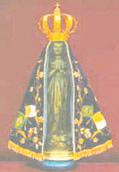
discovery October 2004 Page 13 Aparacida's Cafe Emporium Unit 13/14 The Victoria Park Centre 443 Albany Highway, Victoria Park OUR NEW BUSINESS IS OPENING SOON IN VICTORIA PARK , with the focus on Health and Wellbeing. Aparacida's is named in honour of "Nossa Senhiora Aparacida's - the Black Madonna -patroness of Brazil. Aparacida's Cafe and Emporium offers fine foods, giftware and jewellry for all.
and Jo-anne the proprietors offer delicious mouthwatering Italian home style meals to tempt the most discerning palate. The menu includes nutritious foods
baskets.
emporium is available to the public, schools and parishes with items for
religious memorabilia, and other select giftware for all
We welcome enquiries for bookings phone: Jo-anne 0414 624 580 We will be open for brunch, lunch and dinner Opening Hours will be Monday - Saturday 9am - 9pm Have faith in your insurance company Call 1300 655 005 for a competitive home & contents insurance quote now. www.ccinsurances.com.au Excellent policy with honest cover Up to 45% discount available Pay by the month option Nil excess for retirees over the age of 55 Cover for Investment & Holiday homes available To Advertise: 9227 7080
Joseph
including gourmet
The
sale that include
occasions.
Joshua Chamberlain (22) carries local youngster Howard Pye. Together with fellow volunteer, Greg Strangman, Josh is making a huge impression on the local community at Balgo.
Photo: Carole McMillen
Is junk cluttering your life?
Dr Ray Guarendi, Catholic psychologist, spoke to Zenit news agency about what damage greed can do to marriages, families and inidividuals - and how to overcome it.
Question: What would you say are the major areas where consumerism has deeply affected Christians' behaviour - without them realising it?
Guarendi: Consumerism seems to me to be the Number 1 corporate sin of Christians. We are simply so deep into it we don't see it anymore.
Our desire for stuff supersedes everything. We are distracted, owned, tempted and seduced by it. We simply think less of God and more of "it" - it consumes more of our waking moments than God. That may be why our Lord spoke more of greed in the New Testament than anything else.
Part of the problem is that American culture views consumerism and stuff as part and parcel of normal living. It just is; it's how people get by. How can that be wrong? But it goes to the core of who we are. Consumerism equates with self - self-centeredness, selffulfillment, self-satisfaction, selfish desires.
Virtually everyone lives to the limit or above what they can afford. That leaves no margin to give of money, to give of time and to simply have extra. Often, when missionaries come into parishes and take a second collection, the number of $1 coins is pathetic. Catholics are the richest religious group in the country.
Unfortunately, we don't see it because we're like fish that don't sense the water around us. We need to make an effort to sense consumerism and try to resist it in our society.
If we gave to the Church the amount of money we spend eating out and shopping - or how much we pay on interest for things we don't really need - the Church would be able to help so many more people.
In our culture, being a consumer is seen as the good life - but it distracts us from the infinitely good life.
Question: How have you seen this phenomenon play out in Christian families?
Guarendi: As a therapist, one of the first things I do with a child who has a behaviour problem is ask the parents to reassess the child's goodies, activities and privileges. Kids are awash in things and leisure opportunities, and it affects their behaviour.
One of the top three stresses in marriages and families is finances.
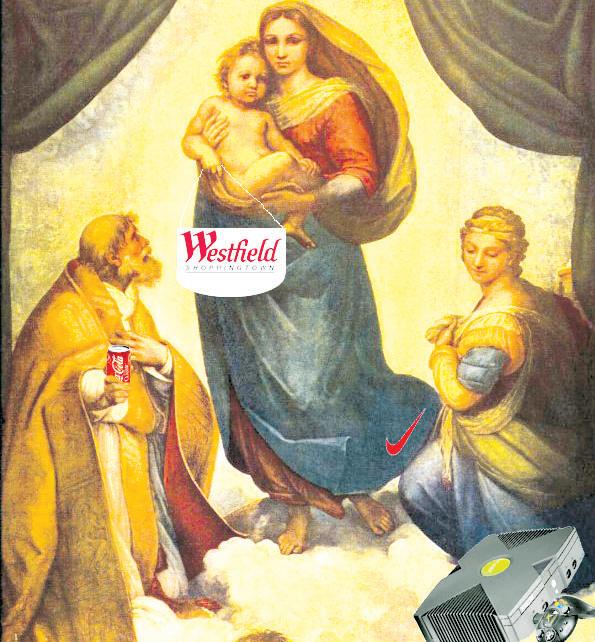

We are the wealthiest culture the world has ever seen, but our discontent over our finances is sky-high.
Because of the degree we want stuff, we have to work. That means that Daddy and sometimes Mummy are away from home all day so that they and their kids can have everything they want. This leads to what I call the "working parent compensation system."
Mums often don't want to work, but think they have to work because of spending habits in the family. They are tired when they come home, they feel guilty about not spending enough time with their children and they are hesitant to spend that little time punishing their kids for misbehaving. That affects their resolve to discipline and be, in effect, parents.
Husbands often pursue their toys more than wives because they believe these make life enjoyable. At a superficial level, guys want the newest, best stuff, and sometimes that includes wives. When
you learn to want things, your wants don't just stop at inanimate objects. You want other people and relationships that seem better than your current ones. When you are dissatisfied with what you have, it doesn't stop with consumer goods. This often leads to affairs and an overall pattern of discontent.
Question: How has increased affluence affected a Christian's ability to commit to a lifelong vocation, especially to the religious life and the priesthood?
Guarendi: The gap between what religious accept as their lifestyle and the available lifestyle in the West is large and has grown wider in the last few generations. African vocations are exploding in part, it seems, because religious life in Africa is an educated and appealing life compared to others' lives in that culture.
In the West, compared to the rest of society, religious life has very little perceived "payoff." The gap is huge, so the commitment
our financial limits.
■ How many things do I need? People often think they can't give to the Church because they have too much stuff to buy, too many payments; they don't have extra to give.
■ How much margin is there in my life? Do I have free time? Do I have free money? Free energy? I'm too busy to do anything for anyone? Look at busy-ness and look how much is necessary. You have to look at what demands your time and if you can justify it. Even if you can afford things, you don't have to have them. Look how much you use things, especially your toys and big things. Ask yourself: Am I neglecting others in order to take care of all my stuff? What kind of time do I spend with my kids and family?
If you own a big home, even if you can pay for it, maintaining it eats up a lot of your time. God won't ask how big your house was. He will ask you how much time you spent with your family.
■ How much stuff do my kids have? Kids need about five toys, if that. They can draw, read and make up things. I use as a rule of thumb: Get rid of 90 per cent of what kids have. It improves your frustration level with them, and it improves their gratitude and behaviour. Give it away. I am not saying live like St. Francis; just get down to a healthy level.
■ Does my stuff interfere with my ability to help and have relationships with people? The more you own, the more you are owned by it.
Question: How can Christians respond to and combat consumerism?
Guarendi: There’s a very simple way to deal with it: Give it away or don't buy it. Go through your house; count all of the things that are just sitting there. They serve no purpose but to adorn our lives.
is bigger. Commitment to priestly or religious vocations has to be fostered daily, because daily one is reminded of what he or she is giving up. Kids these days have a lot of stuff. For them to respond to a call to religious life, it has to be pretty strong. They have to turn their back on a lot of the "good life" to commit solely to Christ.
We live in the culture where the attention span is short. We define the goodness of life by its variability, its progressiveness and change. Committing to something for life, such as marriage, can be looked at as psychologically suffocating. We can't commit to just one thing. Tradition, commitment and stability are looked down on.
Question: How can we gauge how much consumerism influences our lives?
Guarendi: Here are some things you can ask yourself.
■ If I am asked to give to the workof the Church, can I do it? Or do I say that I would love to, but I can't financially? That is an indication that we are living at or beyond
Look at how you spend your money. If someone is hurting and needs your help, are you contributing only $5 to help them? Why are you not giving them more?
Most Christians see tithing as the standard of generosity. Tithing in the Old Testament is a small percentage. In the New Testament, the standard is to give your second coat to another - that's giving 50 per cent of what you have.
Consumerism does not help in the life of virtue. It is a subtle corroder of Christian virtue. It is devastating to a Christian's walk with the Lord because it flows in tandem with preoccupation with self.
Consumerism is a continuation of self-absorption - life is to get, not to give. Materialism is completely antithetical to Christian living and the giving of ourselves, our belongings and our lives.
We need to look at ourselves, our homes and how we live with an objective eye. Look at what is helping you get to heaven, and what is keeping you from walking with God.
- ZENIT
discovery October 2004 Page 14
Shauna wins
Surprised and happy is how Aranmore student
Shauna Narrier described herself after hearing she’d been named as joint Most Outstanding Aboriginal Female Student 2004 by the Catholic Education Office.
“The principal, Mr Elliott came up to me in the playground and gave me a letter and told me to read it” she says. “It said I’d won - I couldn’t believe it.”
Shauna, who is from Minginew,
came to Aranmore Catholic College in 2001 and is an active member of the college community. An excellent sports woman, she was selected in the ACC Catholic Schools - WA Netball team to tour Hawaii last April and has played State League Netball for the Warriors. She was a student councillor in 2003 and has been the best performing Aboriginal student in her year group since 2001.
Aboriginal Student Co-ordinator Ms Connie Quattrini says Shauna has worked hard for her success. “She is an extraordinary young lady, who has allowed herself to fulfil her full potential” she says.
Shauna lives with her sister and
has supported herself with parttime work financially for the past two and a half years. She raised the funds for her netball tour to Hawaii herself.
The best thing about Aranmore is the teachers, says Shauna. “They’re just so nice, they make you feel really comfortable,” she said. "Everyone around you is supportive here.”
Shauna wants to be a nurse and has done work experience at a child-care centre and old-peoples’ home.
She plans to travel to Sydney next year, then study nursing. “I want to be a nurse, “she says. “I just love helping people.”
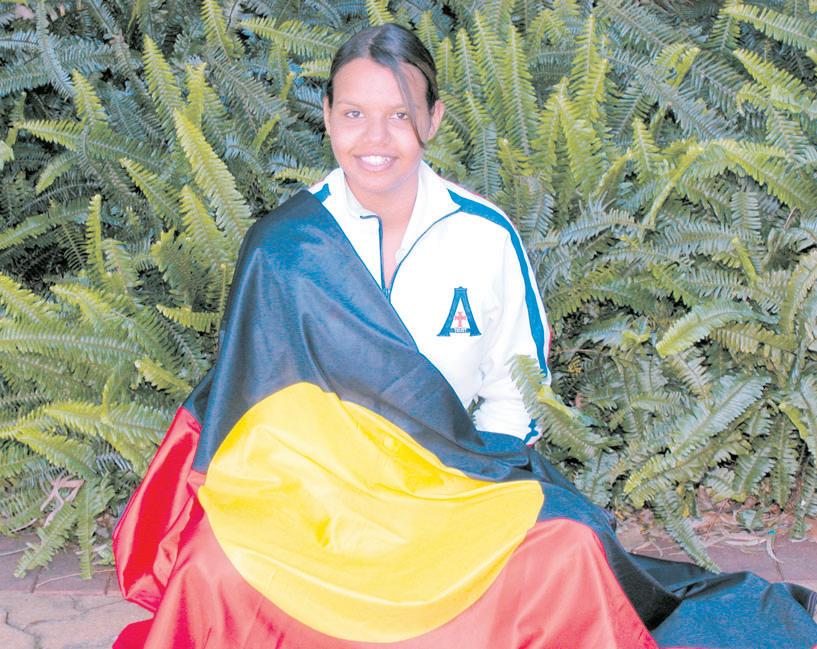
NDA interest rising
Interest in the Bachelor of Education Conversion course at the University of Notre Dame is on the rise and it appears part of the reason for this has been the implementation of new policy reforms adapted within the Western Australian College of Teaching (WACOT). The new reforms outlined by the WACOT have significant employment implications for three-year trained teachers who are currently out of the teaching workforce. Essentially, the reforms encourage teachers with three year qualifications to upgrade their qualifications to a four year bachelor degree. It is for this reason that the “Conversion” course at Notre Dame has been designed to extend an opportunity for three-year trained teachers to upgrade their qualifications to four-year trained status.
The Bachelor of Education Conversion course enables participants to specialise in the areas of Early Childhood Education, Special Needs and Religious Education. Many teachers from Catholic schools are also using the course to meet and upgrade their required background for Accreditation.
Notre Dame’s flexible study
StTeresa’s Catholic Church Nungarin was blessed and opened on 15 November 1954 by the Lord Abbot of New Norcia, Bishop Gregory Gomez. Prior to the Church being built, Mass was said at the Town Hall. Fundraising had been held over some years and similar churches were built in Kununoppin, Mukinbudin, Wialki, Beacon and Bencubbin around the same time. Father Placid OSB was the Parish Priest at the time.
To celebrate the Golden Jubilee of St Teresa’s, Bishop Donald Sproxton will celebrate Mass at 11.00am on Sunday 24 October 2004.
options make this course highly accessible. The course offers one week intensive programs during the school holidays in January, April and July and both internal and external study modes. The course requires eight units, and using the flexible study options can be easily completed within two years at a part time rate, doing just one unit at a time. With the introduction of FEE-HELP in 2005 students will be able to defer the cost of their study making this course more accessible than ever before.
Apart from meeting the professional requirements by upgrading qualifications, the chance to specialise and choose from a range of interesting units makes this course a great option for both personal and professional renewal.
The closing date for applications for semester one, 2005 is Thursday September 30, 2004. Late applications will be accepted but will not be guaranteed for first round of offers. As with all Notre Dame courses, demand for places is very high. For further information please contact the Prospective Students & Admissions Centre on 9433 0530 or admissions@nd. edu.au

discovery October 2004 Page 15
past
present parish-
community members are welcome to
Lunch will follow
the Nungarin Hall.
can be directed to Kevin and Dianne Crogan, 9046 5041 or Yvonne Gray, 9044 1037. St Teresa's Church, home to a community of faith over 50 years. Celebrations are coming up on Sunday 24 October. Calling all parishioners Dinner with Archbishop Barry J Hickey 28 September 2004 6.30pm The White House (Isaia House of Prayer) 18 Teague St Victoria Park Single, Catholic men, 19 years old and older who are seriously considering the priesthood are invited to join the Archbishop for dinner and discussion Please make a Reservation Fr Armando Tel/Fax: (02) 9470 9113 Email:frarmando@perthcatholic.org.au
All
and
ioners and
attend.
at
Enquiries
- Georgia Loney
WIN WIN WIN WIN WIN WIN Aparacida's Cafe and Emporium is giving away 2 - $30 vouchers to be used in house on gifts or a meal. Write your name address and phone number on the back of an envelope with the meaning of Aparacida and send to discovery, PO Box 75, Leederville, WA 6092 Thereʼs a message waiting for you... at http://www.wyd2005.org/index.php?id=88
Shauna Narrier's hard work and perseverance have seen her named as joint most outstanding female Aboriginal student by the CEO.
The Last Word
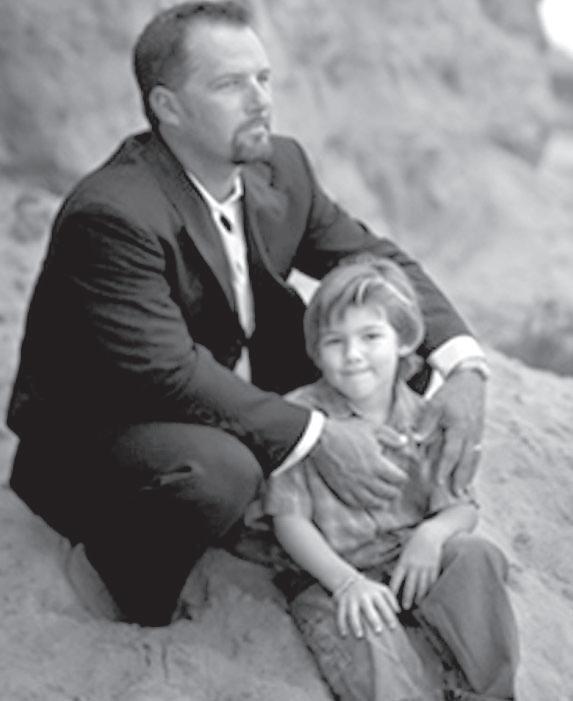


What it means to be a real man
Our culture has a twisted view of the role of the man, so prayerful Catholic men are needed to be witnesses of a genuine, healthy masculinity
By Carl Olson
It's tough being a man.
It's even tougher being a Catholic man who is serious about his love for God, the Church and his family.
That’s not a complaint, but the observation of many Catholic men who struggle to live holy lives in a culture that is often unfriendly to both Christianity and authentic masculinity. It also echoes the observation of Pope John Paul II, whose 1992 “Letter to Families” contrasts the Christian civilization of love with the godless culture of death.
The latter, the Holy Father explained, is marked by untilitariansim and a “culture of use”, in which “woman can become an object for man, children a hindrance to parents, the family an institution obstructing the freedom of its members”.
The culture of abortion, abuse and pornography continually attacks boys and men, seeking to destroy authentic masculinity and fatherhood.
Popular culture is saturated with skewed and false notions of fatherhood.
Consider how many movies and television shows portray fathers as harsh, distant, detached and abusive - as if that were the norm.
It is also becoming increasingly common to see the father portrayed as weak, even emasculated, men who try to win over their children through manipulation and by giving them whatever they want - regardless of the consequences.
These two portrayals of fatherhood have something in common: the fathers fail to take responsibility for who they are as men.
Recently, a priest was asked what he thought was the most serious problem among Catholic men today.
“Many men are failing to be spiritual leaders”, he replied. “They need to ask themselves if they are really doing enough and if
they are doing the right things”. A significant and related problem, he added, is that some men see themselves primarily as breadwinners, not as spiritual leaders of their families.
“They often disappear when it comes to spiritual growth, whether being attentive to their own spiritual growth or to that of their wife and children”, he said.
Long, hard look
Danny Abramowicz, former star of the New Orleans Saints and author of “Spiritual Workout of a Former Saint” concurs. “Guys want to change their lives”, he said “but don’t know how to go about it”.
That’s because “we’re ignorant of our faith. Secularism has taken over and changes the role of men in the family”, he said.
Abramowicz stressed that spiritual growth for men comes from taking a long, hard look at their priorities and their view of God.
“One problem is that quite a few men aren’t in awe of God,” he told OurSundayVisitor
“They think that spirituality is something that their wives will take care of. The devil has sold men the lie that admitting their need for God and spiritual growth is a sign of weakness. But it is only when we see God for who He is that we can start to become the men He wants us to be”, he said.
In Familiaris Consortio (“On the Christian Family in the Modern World”), John Paul II writes that men are called to reveal and to relive “on earth the very fatherhood of God”.
This is true of all men, whether they are priests, married, single or widowed. All men are meant to be fathers in a vital way.
The Pope goes on to emphasise the father’s need to be responsible and to take a central role in the education of his children. He states that a father is to give witness to “an adult Christian life which effectively introduces the children into the living experience of Christ and
the Church”. Deacon Harold Burke Sivers, husband and father of four, is founder of the apostolate Aurem Cordis whose name comes from the opening line of the “Rule of St Benedict”: Obsculata, O fili, praecepta magistri, et inclina aurem cordis tui (“Listen, O my son, to the precepts of the Master, and incline the ear of your heart”).
Aurem Cordis focuses on male spirituality, lay vocations and family life.
“Both men and women look to Christ for spiritual growth” Deacon Burke Sivers said, “but they are uniquely different.
They have complementary and different gifts”.
The deacon believes that it is Christ the servant who should be at the heart of a man’s spirituality.
“Men are called to serve (as the heads of their families)”, he explained, “not because men are better than women, but because they are called to lead and serve their families”.
The paradox, he said, is that it is through leadership that service is shown.
“Who is the greatest in the Kingdom?” He asked rhetorically - alluding to Jesus’ question to his disciples.
The answer: “Those who serve”.
Pope John Paul mentions this service often in Familiaris Consortio and quotes from Pope Paul VI, who exhorted men in this manner: “And you, fathers, do you pray with your children, with the whole domestic community, at least sometimes? Your example of honesty in thought and action, joined to some common prayer, is a lesson for life, an act of worship of singular value, In this way you bring peace to your homes... Remember, it is thus that you build up the church”.
This reference to prayer is notable because some men admit how difficult it is for them to lead their family in prayer and to share openly their thoughts and feelings
Walk the Talk
A father's four tips for faith growth Pray
about their spiritual life with others - even with their spouse.
Bottom line
“Men need to make time for prayer”, Abramowicz insisted. “Men must make a commitment to prayer. They need to make and keep an appointment with the Lord every day. Prayer is conversation with God, and it is through that conversation that we get to really know who God is and how much we need Him”.
In Redemptoris Custos (“Guardian of the Redeemer”), Pope John Paul states that, “Joseph’s fatherhood - a relationship that places him as close as possible to Christ, to whom every election and redestination is ordered (see Rom 8:28-29) - comes to pass through marriage to Mary, that is, through the family.”
In considering the birth of Jesus and His early childhood, it is easy sometimes to forget the prominent place of St Joseph, who was not a father in name only but was given “fatherly authority over Jesus”.
St Joseph’s fatherhood, the Pope explains, is exercised by His dedicated service to “the person and mission of Jesus.”
In a similar way, fatherhood for Catholic men is exercised through dedicated and loving service to their Saviour. Fatherhood means embracing the cross of Christ and dying to selfishness, impatience and pride. It involves listening to God with attentive hearts - “incline the ear of your heart” - and not shrinking from obedience of faith, which is the true path to spiritual growth.
Nobody said being a man is easy - and being a man of God is a tremendous challenge. But the civilization of love requires men who love, sacrifice and serve, men who daily “put on the Lord Jesus Christ”, the Son who became a servant, and daily seek to do the Father’s will. - OSV
Each day should begin and end with prayer. Men should spend a few minutes each day in private prayer and then spend time in prayer with their families. Pray with your spouse and children at family meals and before going to bed. Pope John Paul II encourages a family Rosary as a devotion and time of prayer that will bring the family together and establish a spirituality nourishing habit.
Fellowship
Get together on a regular basis with other men to talk openly abut your relationship with God, your love for Jesus and your growth in the Catholic faith. Perhaps have a bible study or a series of informal classes and discussions about Catholic teaching. Begin with prayer, be accountable to one another and encourage and support each other.
Learn and educate
Find ways to learn more about the Catholic faith and then pass it on to your family and to those around you. There are many excellent Catholic books and tapes available that are geared toward various levels of knowledge. Make time to study Church doctrine and to understand more deeply what Catholics believe and why they believe it.
Lead and serve
Prayerfully examine your priorities, your weaknesses and your strengths. Then ask God for help in discerning what changes you might need to make in order to be a better spiritual leader and servant of your family. Emulate Jesus by seeking God's will and orienting your priorities around it.
discovery October 2004 Page 16

































 FBy Raelene Hall
FBy Raelene Hall












 Sam and Bethany Torode
Sam and Bethany Torode



 MBy Jamie O'Brien
MBy Jamie O'Brien

 By Jamie O'Brien
By Jamie O'Brien








